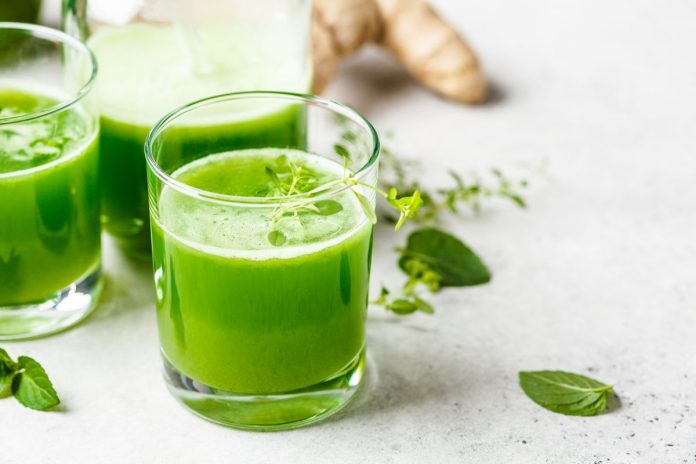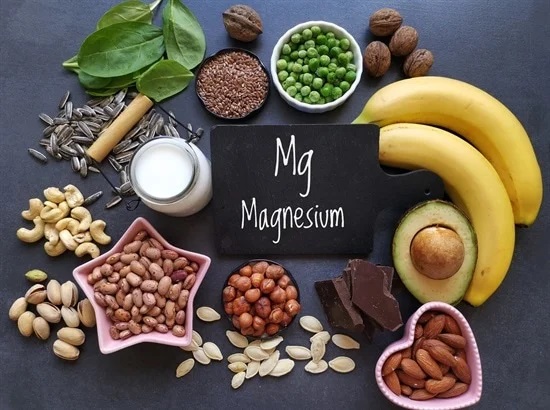Your metabolism is like the engine that powers your body’s energy expenditure. A well-functioning metabolism not only supports weight management but also influences overall vitality and well-being. If you’ve been looking to rev up your metabolism, this article is your guide to implementing effective strategies that can help you achieve your goals.
1. Stay Active Throughout the Day: Incorporate regular physical activity into your routine. While structured workouts are essential, don’t underestimate the power of non-exercise activity thermogenesis (NEAT). This includes activities like walking, standing, and fidgeting, which contribute to calorie burning over the day.
2. Strength Training: Building lean muscle mass through strength training can significantly impact your metabolism. Muscle tissue burns more calories at rest than fat tissue does, so adding muscle can lead to a higher resting metabolic rate.
3. Stay Hydrated: Drinking water has been shown to temporarily boost metabolism. Aim to stay hydrated throughout the day to support various bodily functions, including metabolism.
4. Prioritize Protein Intake: Eating protein-rich foods can increase the thermic effect of food (TEF), which is the energy your body expends to digest, absorb, and process nutrients. Protein has a higher TEF compared to fats and carbohydrates, making it an essential part of your diet.
5. Don’t Skip Meals: Regular, balanced meals help keep your metabolism humming. Skipping meals can slow down your metabolism as your body conserves energy in response to reduced calorie intake.
6. Eat Smaller, Frequent Meals: Consider dividing your daily calorie intake into smaller, more frequent meals. This approach can help prevent overeating and keep your metabolism active throughout the day.
7. Spice Up Your Meals: Certain spices, such as cayenne pepper and ginger, contain compounds that can temporarily increase metabolic rate. Incorporate these spices into your dishes to add flavor and give your metabolism a boost.
8. Get Quality Sleep: A lack of sleep can disrupt hormonal balance, affecting metabolism and appetite regulation. Prioritize getting 7-9 hours of quality sleep each night to support your body’s metabolic processes.
9. Manage Stress: Chronic stress can lead to hormonal imbalances that affect metabolism. Engage in stress-reducing activities like meditation, yoga, or deep breathing to help keep your metabolism on track.
10. Include Healthy Fats: Healthy fats, such as those found in avocados, nuts, and olive oil, can support metabolism and satiety. Including moderate amounts of healthy fats in your diet can help optimize metabolic function.
11. Stay Consistent: Consistency is key when it comes to maintaining a healthy metabolism. Focus on adopting sustainable habits rather than quick fixes, as long-term consistency is what yields lasting results.
12. Stay Well-Hydrated: Drinking enough water is essential for efficient metabolism. Even mild dehydration can slow down metabolic processes, so make sure to sip water throughout the day.
Improving your metabolism involves a combination of healthy lifestyle choices and mindful dietary practices. By staying active, incorporating strength training, eating balanced meals, and managing stress, you can create a metabolism-boosting environment that supports your overall well-being.
Remember that small, consistent changes over time can lead to significant improvements in your metabolic rate, helping you achieve your health and fitness goals. As with any lifestyle change, it’s a journey that requires patience and dedication, but the rewards in terms of increased energy and vitality are well worth it.
El metabolismo es como el motor que impulsa el gasto energético del cuerpo. Un metabolismo que funciona bien no sólo ayuda a controlar el peso, sino que también influye en la vitalidad y el bienestar general. Si quieres acelerar tu metabolismo, este artículo es tu guía para poner en práctica estrategias eficaces que te ayudarán a alcanzar tus objetivos.
1. Manténgase activo a lo largo del día: Incorpore la actividad física regular a su rutina. Aunque los entrenamientos estructurados son esenciales, no subestime el poder de la termogénesis de la actividad sin ejercicio (NEAT). Esto incluye actividades como caminar, estar de pie y moverse, que contribuyen a la quema de calorías a lo largo del día.
2. Entrenamiento de fuerza: Aumentar la masa muscular mediante el entrenamiento de fuerza puede influir significativamente en el metabolismo. El tejido muscular quema más calorías en reposo que el tejido graso, por lo que añadir músculo puede conducir a una mayor tasa metabólica en reposo.
3. Mantente hidratado: Se ha demostrado que beber agua aumenta temporalmente el metabolismo. Procure mantenerse hidratado durante todo el día para favorecer diversas funciones corporales, incluido el metabolismo.
4. Priorice la ingesta de proteínas: El consumo de alimentos ricos en proteínas puede aumentar el efecto térmico de los alimentos (TEF), que es la energía que gasta tu cuerpo para digerir, absorber y procesar los nutrientes. Las proteínas tienen un mayor TEF en comparación con las grasas y los carbohidratos, por lo que son una parte esencial de tu dieta.
5. No te saltes comidas: Las comidas regulares y equilibradas ayudan a mantener el metabolismo en marcha. Saltarse comidas puede ralentizar su metabolismo, ya que su cuerpo conserva energía en respuesta a la reducción de la ingesta de calorías.
6. Coma poco y con frecuencia: Considere la posibilidad de dividir su ingesta diaria de calorías en comidas más pequeñas y frecuentes. Este enfoque puede ayudar a prevenir comer en exceso y mantener su metabolismo activo durante todo el día.
7. Condimente sus comidas: Ciertas especias, como la pimienta de cayena y el jengibre, contienen compuestos que pueden aumentar temporalmente la tasa metabólica. Incorpora estas especias a tus platos para añadir sabor y dar un empujón a tu metabolismo.
8. Duerma bien: La falta de sueño puede alterar el equilibrio hormonal, afectando al metabolismo y a la regulación del apetito. Prioriza dormir de 7 a 9 horas de calidad cada noche para favorecer los procesos metabólicos de tu cuerpo.
9. Controlar el estrés: El estrés crónico puede provocar desequilibrios hormonales que afectan al metabolismo. Participa en actividades que reduzcan el estrés como la meditación, el yoga o la respiración profunda para ayudar a mantener tu metabolismo en marcha.
10. Incluye grasas saludables: Las grasas saludables, como las que se encuentran en los aguacates, los frutos secos y el aceite de oliva, pueden favorecer el metabolismo y la saciedad. Incluir cantidades moderadas de grasas saludables en su dieta puede ayudar a optimizar la función metabólica.
11. Mantén la constancia: La constancia es clave cuando se trata de mantener un metabolismo saludable. Céntrate en adoptar hábitos sostenibles en lugar de soluciones rápidas, ya que la constancia a largo plazo es lo que produce resultados duraderos.
12. Mantente bien hidratado: Beber suficiente agua es esencial para un metabolismo eficiente. Incluso una deshidratación leve puede ralentizar los procesos metabólicos, así que asegúrate de beber agua a sorbos durante todo el día.
Para mejorar el metabolismo hay que combinar un estilo de vida saludable con una dieta consciente. Manteniéndose activo, incorporando el entrenamiento de fuerza, comiendo alimentos equilibrados y controlando el estrés, puede crear un entorno que estimule su metabolismo y favorezca su bienestar general.
Recuerde que los cambios pequeños y constantes a lo largo del tiempo pueden producir mejoras significativas en su tasa metabólica, ayudándole a alcanzar sus objetivos de salud y forma física. Como con cualquier cambio de estilo de vida, se trata de un viaje que requiere paciencia y dedicación, pero las recompensas en términos de aumento de energía y vitalidad merecen la pena.















